
Call Us Today!
508-488-9999
Home Blown-in Insulation & Gutter Solutions
25 February 2026
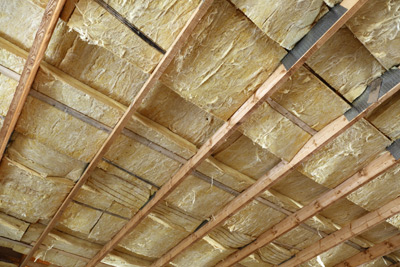
Blanket insulation is one of the most effective ways to keep your home comfortable and energy-efficient. But like any home feature, it requires regular maintenance to ensure it continues performing at its best. Here’s how you can inspect and maintain your blanket insulation over time.
Start by inspecting your insulation for signs of wear and tear. Look for areas that are compressed, torn, or water-stained. Moisture damage can lead to mold growth and reduce insulation efficiency, so it’s essential to catch it early.
Blanket insulation works best when it completely fills the space without gaps. Inspect your attic, walls, or crawl spaces to make sure there are no bare spots or sagging sections. Any gaps can allow heat to escape, lowering your home’s energy efficiency.
Rodents and insects can sometimes nest in insulation, which can damage the material and create hygiene issues. Look for droppings, nesting materials, or chewed insulation, and take action if needed.
Proper airflow in your attic and walls helps prevent moisture buildup, which can degrade insulation over time. Make sure vents are unobstructed and functioning correctly.
While basic checks can be done on your own, a professional inspection every few years can help identify hidden problems. Experts can measure your insulation’s R-value, check for settling or compression, and recommend upgrades if necessary.
If your insulation is old or damaged, consider adding new blanket insulation or replacing the worn sections. Modern insulation materials are more energy-efficient and can help reduce your heating and cooling costs.
Maintaining your blanket insulation doesn’t have to be complicated. Regular inspections and timely upkeep will ensure your home stays comfortable, energy-efficient, and safe for years to come.
Custom Insulation Company, Inc. is here to help with expert insulation inspections and maintenance. Contact us today to keep your home’s insulation in top shape!
20 February 2026
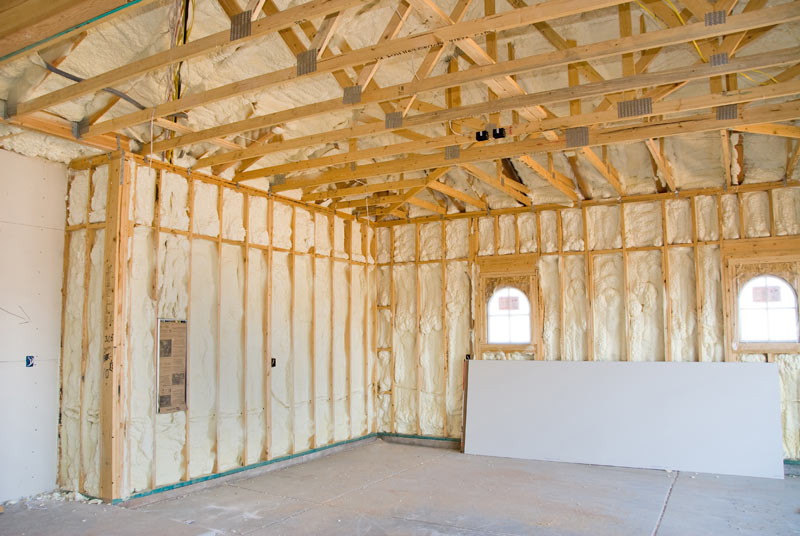
Proper insulation is essential for energy efficiency, comfort, and reducing heating and cooling costs. At Custom Insulation Company, Inc., we often get questions from homeowners about whether their insulation is performing effectively. Knowing how to inspect your home for proper coverage can save energy and prevent costly issues.
The first step is to understand the types of insulation in your home. Many homes use a combination of blanket insulation, blown-in insulation and spray foam. Recognizing which type you have will help you know what to look for and how it should appear in your home.
Attics are one of the most critical areas for insulation. When inspecting this space, look for consistent coverage across the entire area, making sure the insulation reaches between joists and around pipes, wiring, and vents. Thickness matters too—compare the depth of your insulation to the recommended R-values for your climate, as colder regions require thicker layers to retain heat during winter.
Walls are another important area. Check for cold spots on exterior walls in winter or hot spots in summer, which may indicate gaps or compressed insulation. If you have access panels, look for areas where insulation is missing or uneven, and watch for any signs of moisture, which can reduce effectiveness.
Floors and crawl spaces above unheated areas also deserve attention. Make sure insulation is properly secured and evenly distributed, as sagging or missing sections can lead to drafts and heat loss. Even the best insulation cannot perform well if air is leaking, so examine windows, doors, and areas around chimneys or vents. Sealing any gaps with weatherstripping, caulking, or foam will help complement your insulation.
Overall, you can often tell if insulation needs attention by monitoring energy bills, indoor temperature consistency, and signs like ice dams on your roof in winter. For a thorough assessment, professional inspections are highly recommended. Experts at Custom Insulation Company, Inc. can use thermal imaging to detect gaps, recommend upgrades, and ensure your insulation meets current building codes and R-value standards.
Proper insulation is the backbone of a comfortable, energy-efficient home. Regularly inspecting your home for coverage and addressing gaps or weaknesses helps save on energy bills, reduces drafts, and improves overall comfort. At Custom Insulation Company, Inc., we provide expert inspections, installation, and upgrades to keep your home cozy and efficient throughout the year.
13 February 2026
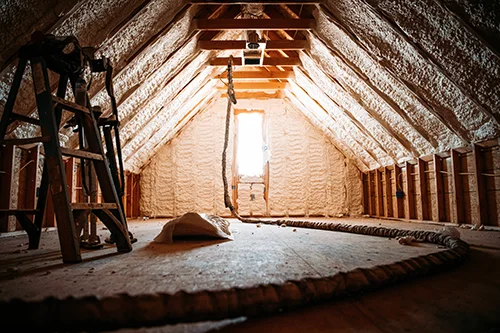
After months of freezing temperatures, snow buildup, and ice, your home’s insulation may have taken more damage than you realize. As the weather warms up, it’s the perfect time to inspect your insulation and make sure your home is still energy-efficient and protected.
At Custom Insulation Company, Inc., we’ve seen how harsh winters can cause hidden problems—moisture buildup, compressed insulation, air leaks, or even mold growth—that lead to higher utility bills and decreased indoor comfort.
A quick spring inspection can reveal:
Checking your insulation now helps prevent future issues, improves energy performance, and keeps your home comfortable year-round. Our team can assess your attic, walls, and crawl spaces, recommend any replacements, and ensure your home is ready for the next season.
Pro Tip: Proper insulation not only cuts energy costs—it also protects your home from moisture and improves air quality.
Get peace of mind before the next temperature drops. Contact Custom Insulation Company, Inc. today to schedule your post-winter inspection or request a free quote!
11 February 2026
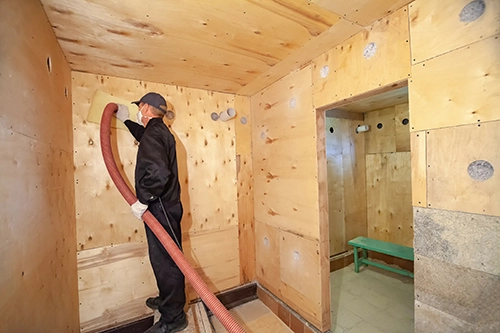
In today’s housing market, homebuyers are more informed and environmentally conscious than ever — and that means energy efficiency has become one of the top priorities when evaluating a property. For homeowners planning to sell, investing in high-quality insulation, like blown-in insulation, can make a real difference in both comfort and resale value.
Blown-in insulation continues to be one of the most effective and affordable upgrades in 2026. By improving thermal performance and sealing hidden gaps, it helps regulate indoor temperature year-round and reduces energy waste. A properly insulated home means lower utility bills — a big selling point for buyers who care about long-term savings and sustainability.
In Massachusetts and across the region, buyers are also looking for homes that are move-in ready and require minimal maintenance. A recent insulation upgrade signals that the home is well-maintained, energy-efficient, and built with comfort in mind. It’s the kind of improvement that not only enhances day-to-day living but also adds measurable value when it’s time to list your property.
At Custom Insulation Company, Inc., we specialize in professional blown-in insulation installations that maximize comfort, efficiency, and resale appeal. Whether you’re insulating your attic, walls, or entire home, our expert team ensures the job is done right — helping you save energy today and stand out in tomorrow’s market.
Energy-efficient homes are the future of real estate, and upgrading your insulation is one of the smartest ways to prepare for it. If you’re ready to add value and comfort to your home, Custom Insulation Company, Inc. is here to help.
Smart upgrades today mean better offers tomorrow.
5 February 2026
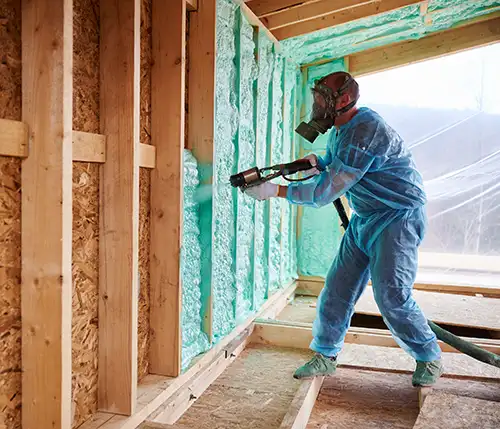
Spray foam insulation is one of the most effective ways to improve energy efficiency, reduce air leaks, and enhance comfort in your home or commercial building. But did you know that improper installation can create serious health and safety risks? At Custom Insulation Company, Inc., we prioritize proper installation to ensure your insulation performs safely and effectively for years to come.
Spray foam expands quickly and hardens in place. If it’s not applied correctly, gaps can form, reducing its energy efficiency and allowing moisture to accumulate. Moisture can lead to mold growth, which poses respiratory health risks. Over-application or incorrect handling of the chemicals can also release harmful fumes.
Our certified technicians have extensive experience in spray foam application, using industry-approved techniques and protective equipment. We take every precaution to protect your family, employees, and property while delivering maximum insulation performance.
Don’t risk your health, comfort, or investment with DIY or inexperienced installers. Contact Custom Insulation Company, Inc. today to schedule a professional spray foam insulation that’s safe, efficient, and long-lasting.
30 January 2026
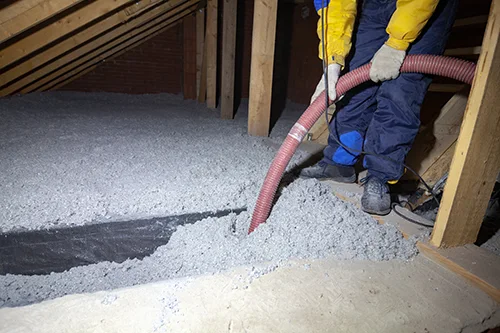
When it comes to improving your home’s energy efficiency, few terms come up more often than R-value — but it’s also one of the most misunderstood. At Custom Insulation Company, Inc., we know that understanding R-value is the first step toward making smart decisions about insulation, comfort, and long-term energy savings.
So, what exactly is R-value? In simple terms, R-value measures how well insulation resists heat flow. The higher the R-value, the better the material is at keeping warm air inside during winter and outside during summer. Think of it as your insulation’s ability to maintain comfort while lowering the strain on your heating and cooling systems.
The right R-value depends on several factors: your home’s location, the area being insulated, and the type of insulation used. For homeowners in New England, where winters can be harsh and summers humid, higher R-values are essential to maintain stable indoor temperatures year-round.
According to current U.S. Department of Energy guidelines, homes in the Massachusetts and Rhode Island region (climate zones 5 and 6) should aim for:
These standards ensure your home is well-protected against heat loss in the winter and heat gain in the summer. However, older homes built before modern codes often fall short of these levels, making them less efficient and more costly to heat or cool.
Blown-in insulation — one of our specialties at Custom Insulation Company, Inc. — is an excellent solution for achieving ideal R-values without major renovation work. By filling gaps and hard-to-reach spaces, it eliminates air leaks that traditional batt insulation often misses. The result is a more even temperature throughout the house, fewer drafts, and measurable reductions in energy bills.
Improving your home’s R-value can yield significant benefits. Studies show that proper insulation can cut heating and cooling costs by up to 15%, and homeowners often notice improved comfort almost immediately. Higher R-values also contribute to a smaller carbon footprint, as efficient homes use less energy overall.
It’s important to remember that insulation performance isn’t just about thickness — it’s about quality installation. Even the best materials underperform when improperly installed. That’s why our experienced team ensures every project meets both manufacturer specifications and local energy standards, giving you peace of mind that your investment will deliver results.
If you’re unsure how well-insulated your home is, a professional assessment can reveal where you’re losing energy — and where an upgrade could make the biggest difference. At Custom Insulation Company, Inc., we’ve been helping homeowners across Massachusetts and Rhode Island stay warm, efficient, and comfortable for decades.
A higher R-value isn’t just a number — it’s your key to a quieter, cozier, and more cost-effective home. Contact Custom Insulation Company, Inc. today to schedule an energy evaluation and find out how much insulation your home really needs.
23 January 2026
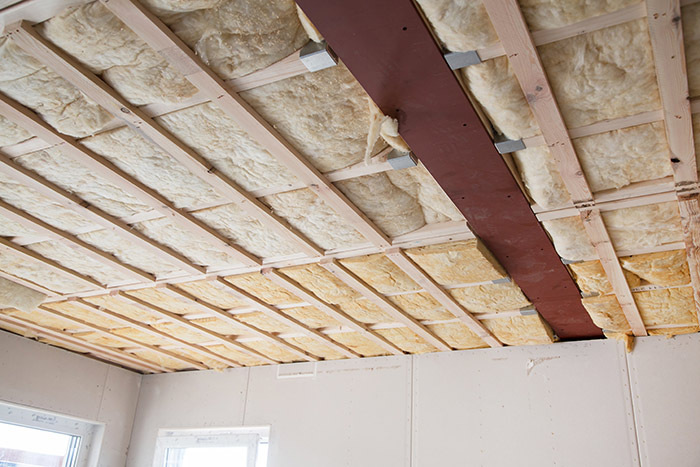
When planning a home renovation, it’s easy to focus on aesthetics — new flooring, fresh paint, or modern fixtures. But if you want your improvements to make a lasting impact on comfort and energy efficiency, don’t overlook blanket insulation. At Custom Insulation Company, Inc., we help homeowners in achieving renovations that look great and perform well year-round.
Blanket insulation, often available in batts or rolls, is a versatile solution for walls, attics, and floors. It acts as a thermal barrier, helping your home stay warm in winter and cool in summer. Proper insulation reduces drafts, prevents heat loss, and keeps energy bills in check — a benefit that’s especially noticeable after investing in a major renovation.
Upgrading or adding blanket insulation during renovation is an investment that pays off. Homes with adequate insulation require less energy to maintain a comfortable temperature, which can significantly lower monthly utility bills. It’s a small change during construction that leads to long-term savings.
Blanket insulation also acts as a sound barrier, dampening noise from neighboring rooms or outdoor traffic. Whether you’re remodeling a bedroom, office, or entertainment space, the added comfort and quiet can make a big difference.
While DIY projects are tempting, proper installation is key to maximizing the benefits of blanket insulation. At Custom Insulation Company, Inc., our experienced team ensures that your insulation is installed correctly, with no gaps or compression, so your home gets the protection it deserves.
Next time you renovate, remember that a beautiful home is only part of the equation — comfort, energy efficiency, and long-term performance matter too. Custom Insulation Company, Inc. is here to make sure your home renovation includes the right blanket insulation solution.
Contact us today to learn more about how we can help improve your home’s comfort and energy efficiency during your next renovation project.
22 January 2026
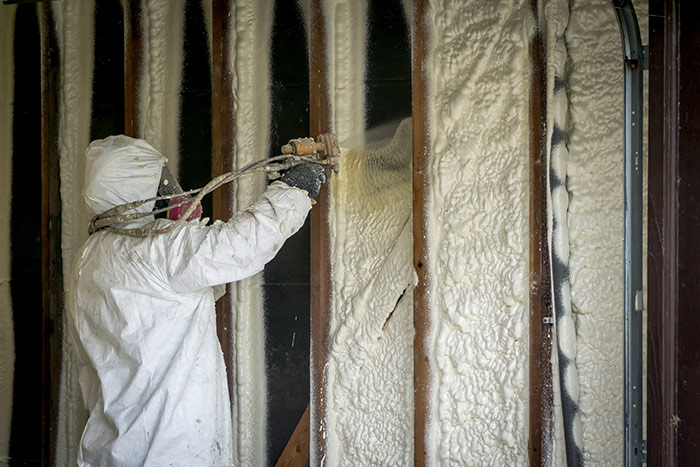
When it comes to increasing property value, most homeowners think of kitchen remodels, landscaping, or curb appeal upgrades. But one of the most underrated ways to boost a home’s long-term value lies behind the walls — spray foam insulation.
At Custom Insulation Company, Inc., we’ve seen firsthand how spray foam insulation can make a significant difference not just in comfort and energy efficiency, but also in overall real estate value.
Unlike traditional insulation, spray foam expands to seal every gap and crevice, creating an airtight barrier that minimizes heat loss, reduces noise, and improves indoor air quality. This advanced insulation performance leads to lower utility costs and better energy efficiency ratings, both of which are highly attractive selling points for potential buyers.
Homes with spray foam insulation also tend to feel more comfortable year-round. By maintaining consistent indoor temperatures and keeping out moisture and allergens, spray foam contributes to a healthier and more stable living environment — a key factor for modern homebuyers.
From an investment standpoint, spray foam insulation offers long-lasting protection and durability, often outliving the building materials themselves. That means fewer maintenance worries and lasting value for decades.
If you’re planning to sell your home or simply want to make it more efficient and future-ready, spray foam insulation is a smart, high-return upgrade that pays off in comfort, savings, and resale appeal.
Contact Custom Insulation Company, Inc. today to learn how spray foam insulation can add long-term value to your property.
14 January 2026
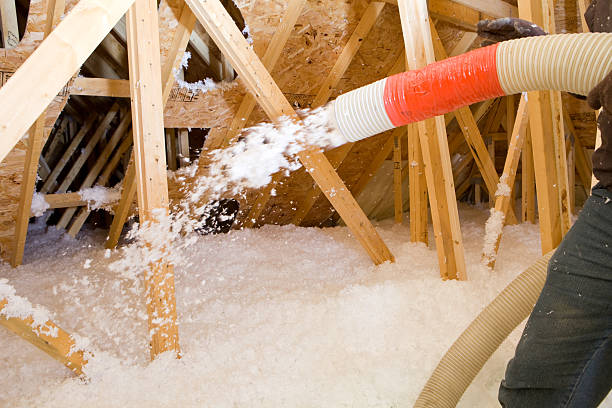
If you’ve ever wished for a quieter, more peaceful home, blown-in insulation could be the solution you’re looking for. At Custom Insulation Company, Inc., we know that insulation does more than just regulate temperature—it also plays a powerful role in reducing unwanted noise and improving your overall comfort.
Blown-in insulation is made from loose, fluffy materials such as cellulose or fiberglass that are installed by blowing them into wall cavities, attics, and other spaces. This process creates a dense, seamless barrier that not only traps heat but also absorbs sound waves. Because blown-in insulation fills gaps and small crevices more effectively than traditional batts, it prevents sound from traveling between rooms and floors, helping to create a quieter indoor environment.
The result is noticeable: less outside noise from traffic or neighbors and reduced sound transfer between interior spaces like bedrooms, offices, or entertainment areas. This makes blown-in insulation an ideal choice for families who value privacy or live in busier neighborhoods. It’s especially beneficial in attics, basements, and shared walls where noise tends to echo the most.
Beyond its soundproofing qualities, blown-in insulation improves energy efficiency, keeping your home warmer in winter and cooler in summer. This dual benefit makes it a smart investment for homeowners looking to enhance both comfort and efficiency.
At Custom Insulation Company, Inc., our team specializes in professional blown-in insulation installation to ensure maximum coverage and performance. Whether you’re renovating an older home or upgrading a new one, we’ll help you create a quieter, more energy-efficient space that truly feels like a retreat.
Contact Custom Insulation Company, Inc. today to learn more about our blown-in insulation services and how they can help soundproof your home while saving on energy costs.
9 January 2026
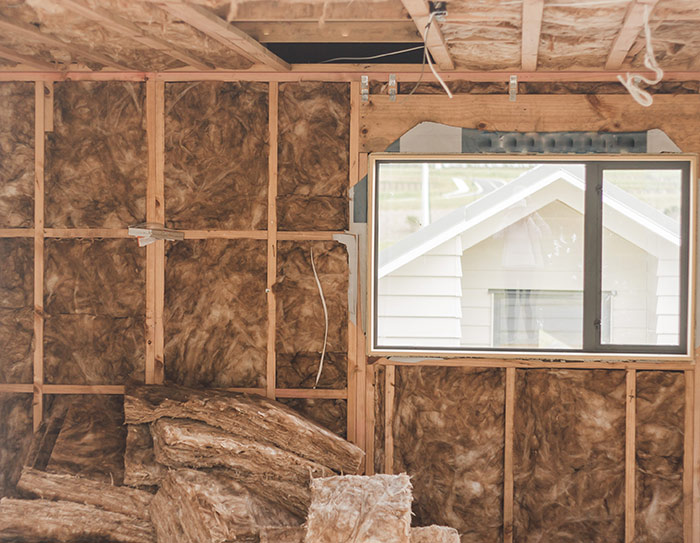
When it comes to keeping your home comfortable and energy-efficient, the right insulation makes all the difference. Blanket insulation—also known as batt or roll insulation—is a tried-and-true solution that delivers big results with minimal hassle. At Custom Insulation Company, Inc., we help homeowners and contractors install high-quality blanket insulation that improves comfort, reduces energy costs, and protects your home year-round.
One of the biggest advantages of blanket insulation is its straightforward installation. Cut to fit walls, attics, or ceilings, it can be installed quickly without specialized tools, saving time and labor costs. Despite the ease of installation, blanket insulation is highly effective at reducing heat loss in winter and keeping homes cool in summer.
Blanket insulation works by creating a barrier that traps air, helping to maintain a consistent indoor temperature. This means lower heating and cooling bills, improved energy efficiency, and a more comfortable living space for your family.
Available in rolls or pre-cut batts, blanket insulation can be used in walls, attics, basements, and even between floor joists. It’s flexible enough to fit irregular spaces while providing consistent coverage for optimal performance.
High-quality blanket insulation resists sagging and settling over time, maintaining its effectiveness for years. Properly installed, it’s a cost-effective way to boost your home’s energy performance without frequent replacements or maintenance.
At Custom Insulation Company, Inc., we specialize in providing and installing premium blanket insulation that delivers easy installation and big results. Protect your home, save on energy costs, and enjoy year-round comfort with the right insulation solution.
Contact us today to learn more about how blanket insulation can transform your home.